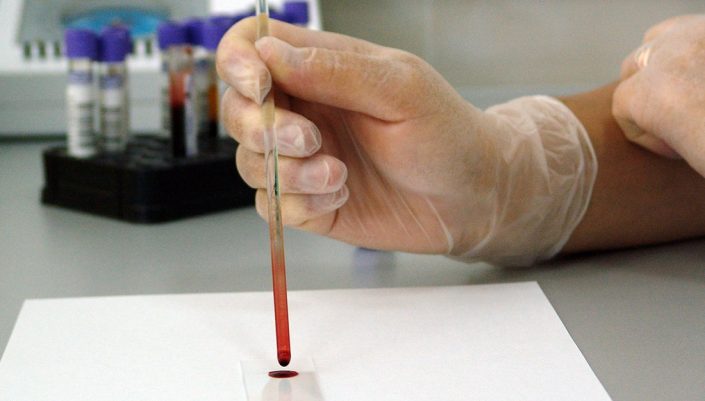New study finds blood test may predict effects of alcohol on infants

Image: College of Medicine
A blood test may help predict how severely alcohol exposure will affect a baby during pregnancy, according to a new study published in the journal PLOS ONE by a research consortium that includes Texas A&M University’s College of Medicine.
The team also includes researchers from the School of Medicine at the University of California, San Diego, as well as at the Omni-Net Birth Defects Prevention Program in Ukraine.
The findings could facilitate early intervention to improve the health of infants and children who were prenatally exposed to alcohol.
Fetal alcohol syndrome is a severe form of a spectrum of mental and physical disabilities, called fetal alcohol spectrum disorders, which can affect a child’s development with long-lasting consequences.
In the United States and Western Europe, an estimated 2 to 5 percent of school-age children are affected by these disorders. In some parts of the world, that number is even higher. Children and adults who are affected may have a range of symptoms, from physical changes like a small head and subtle differences in the face, to learning difficulties and behavioral issues.
Despite widespread prevention guidelines, drinking during pregnancy still occurs. This is partly because about half of pregnancies in the United States are unplanned, and therefore many women might not realize that they need to stop consuming alcohol before the damage is done.
“It’s a huge problem,” said Rajesh Miranda, a professor in the Department of Neuroscience and Experimental Therapeutics, College of Medicine, and co-senior author of the article, “but we might not realize the full scope because infants born with normal-looking physical features may be missed, making many cases difficult to diagnose early.” Consequently, there is a need for early biomarkers that can assist with predicting infant disability.
With a grant from the National Institutes of Health, the researchers looked at birth outcomes for 68 pregnant women enrolled in the study at two perinatal care clinics in western Ukraine. The team obtained detailed health and alcohol consumption histories and second and third trimester blood samples from each woman.
The results indicated that moderate-to-high levels of alcohol exposure during early pregnancy resulted in significant differences in some circulating small RNA molecules, termed microRNAs (miRNAs), in maternal blood. These differences were particularly notable in those mothers whose infants showed some physical or neurobehavioral signs of alcohol effects in the first 12 months of life.
“Collectively, our data indicate that maternal plasma miRNAs may help predict infant outcomes and may be useful to classify difficult-to-diagnose FASD subpopulations,” Miranda added.
More from the College of Medicine

